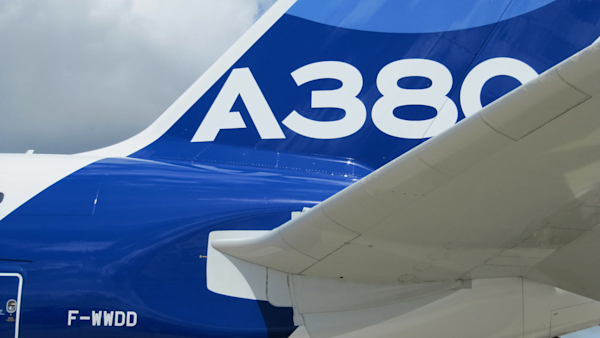Airbus VS Boeing: The Ultimate Debate

For more than thirty years, there has been an ongoing debate on which aircraft manufacture is better -- Boeing or Airbus. Both of the companies have repeatedly proven to be the best on the market, and are now the only two left due to their success. However, since both Boeing and Airbus are huge driving focuses in the aviation industry, that poses the question: Who is better, Boeing or Airbus?
HISTORY
Since the 1990s, the rivalry between Boeing and Airbus has been coined as a duopoly, as they are the only two major airline manufacturers dominating the air travel industry. The Boeing company preceded Airbus, being founded in 1916 by William Boeing. The headquarters have since relocated from Seattle, Washington to Chicago, Illinois. It wasn't until 1970 that the European company, Airbus, came into the picture from Toulouse, France.
According to aviatiorinsider, Airbus has received 21,200 orders. 14,129 deliveries have been made, while 7,071 orders are currently unfilled. 88% of all aircraft delivered are still in operation. In total, the Airbus fleet has 11 families of planes with 6 still in production today.
Boeing, on the other hand, has produced ten families of aircraft, 5 of which are no longer in production. As of December 31, 2021, Boeing has received 25,512 orders for its jet airliners. 19,564 have been filled, while 5,948 are yet to be filled.
For decades, the Boeing 737 was in the lead for the narrow-body aircraft market, however the 737 MAX crashes caused a cancellation of 675 orders, which impacted Boeing's success. Financially, Boeing remains in second place in regards to production of commercial jetliners.
In 2022, Airbus managed to increase it's production rate increase of 8% while Boeing was able to achieve a 41% increase from 2021. However, out of these numbers, Airbus delivered 661 aircrafts and Boeing delivered close to half of this number -- 340. Both airlines faced major industry challenges within the past year
THE KEY DIFFERENCES
Boeing and Airbus both have many, mainly structural, key differentiators that eventually play into the ongoing debate. Obviously, there is the difference between state of manufacture -- Boeing is an American company and Airbus is a French company. Age also slightly plays a role into their differences. Because Boeing is an older company, many say that they are less likely to change their aircraft design.
Each company follows their own naming system as well. For Boeing, each model is named in the format of "7x7" where follows "A3x0", where the x belongs to the family number.
There are also a few physical comparisons between Airbus and Boeing. For nose design, Boeing has a pointed nose and Airbus has a round nose. This is the easiest way to tell the difference between the two aircrafts. Windshield design is another cosmetic distinction -- Airbus has a notched window design and Boeing has a v-shape design on the windshields.
Additionally, there is a large contrast between the landing gear. For instance, Airbus has a longer front landing gear. Boeing has four wheels on each main landing gear assembly, while Airbus only has two. Boeing's set of main landing gear is also fitted to the front end of the aircraft's belly, while Airbus' can be found at the back end. Another main difference is the engine design. Within the engine, a Boeing has an almost flat cowling at the bottom and a Airbus has a round, almost perfectly circular, cowling.
While this may seem like a small difference, it is one that many may not note. Each aircraft has strobe lights on the aircraft tails, but they blink at different cadences. The light on a Boeing flashes only once and the light on an Airbus blinks rapidly twice.
However, despite all of these differences, the cockpit design is definitely at the top of the list -- and is often the main discussion point of Airbus vs Boeing. As seen in aeroclass, the Boeing uses a conventional yoke, whereas the Airbus utilizes a side stick. Both companies have reasons for their vast difference in design. Boeing "values tradition and the better feel for the aircraft brought about by the yoke" and "Airbus prides itself in more comfort for the pilot and a better view of the flight instruments. There are still a few more differences between the two aircraft manufacturing companies such as throttles vs thrust levers, aircraft monitoring systems, and body tail structure.
AIRBUS PROS AND CONS
PROS
18" economy seats
Pilots can switch between aircraft with minimal training
Better cabin in A320 and A380
EU subsidies promote more development
CONS
Shorter lifespan
Less control feel for pilots
Too reliant on automation
BOEING PROS AND CONS
PROS
Long lifespan
Better cabin in 777 and 787
More control feel for pilots
CONS
17" economy seats
More training is required to fly other aircraft
MCAs
From <https://aviatorinsider.com/airplane-brands/airbus-vs-boeing/>
CONCLUSION
While these companies and their aircrafts may seem super similar, there are quite a few differences that allow for them to both be so successful. However, at the end of the day, it all comes down to personal preference. Whether you are a pilot, frequent flyer, aviation mechanic, or anything in between, you can't go wrong with either company - Airbus or Boeing.
References:
https://aviatorinsider.com/airplane-brands/airbus-vs-boeing/
https://www.aeroclass.org/the-difference-between-boeing-and-airbus/
https://simpleflying.com/boeing-vs-airbus-2022-winner/#the-bottom-line
